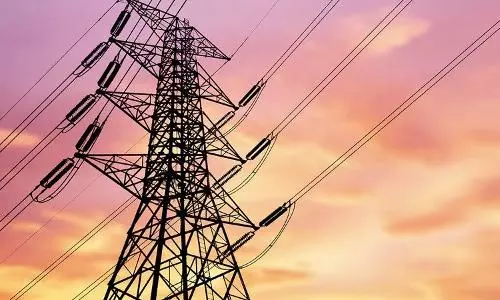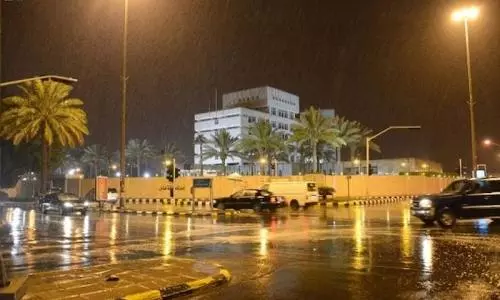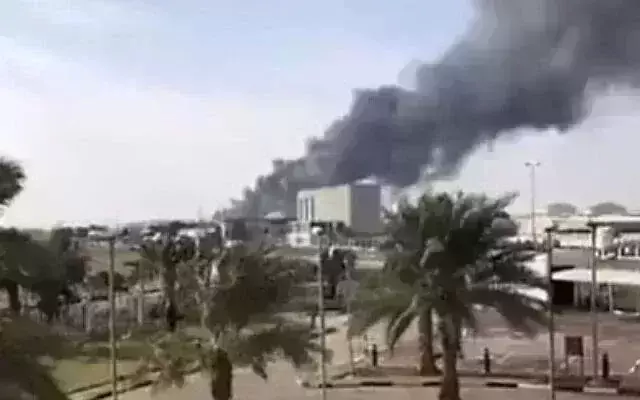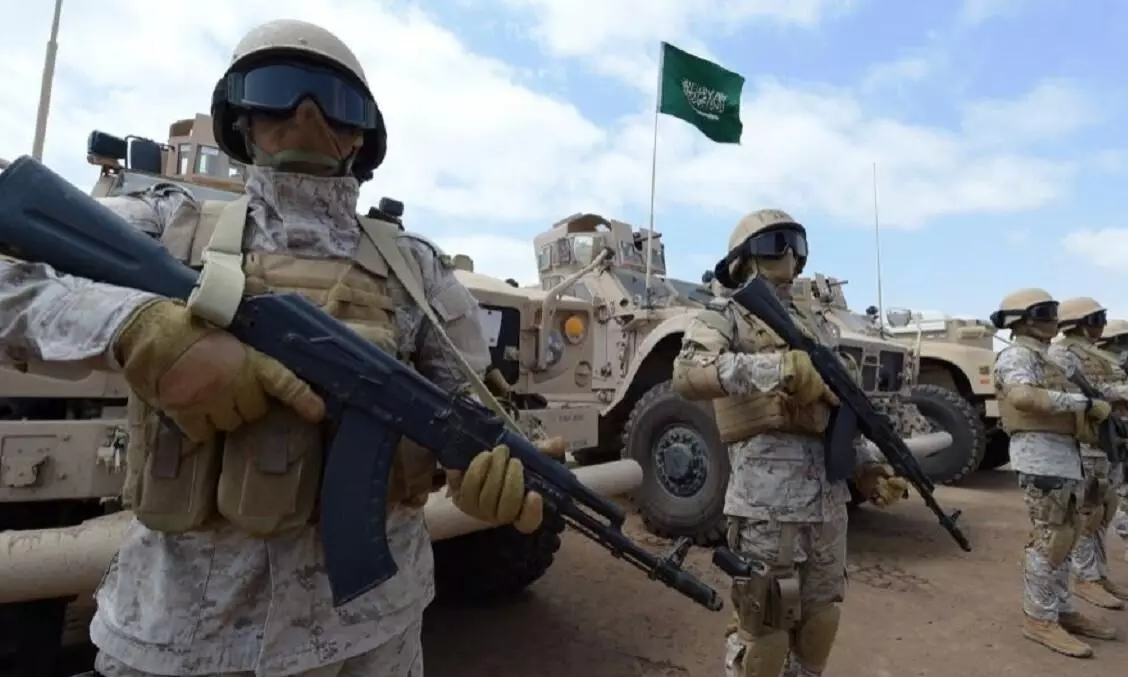
Don't let this conflagration spread
text_fieldsScreenshot from video purportedly showing fire after drone attack in Abu Dhabi on January 17, 2022
In an attack on UAE's oil facilities, two Indians and a Pakistani were killed when fuel tanker trucks exploded in the Musaffah industrial area near the Adnoc warehouses of Abu Dhabi National Oil Company on Monday morning. With the UAE confirming that the incident was the result of a drone strike by Houthi rebels of Yemen, a situation has arisen raising concerns that the civil war in Yemen that started in 2014 is spreading in a new direction. When a Houthi military spokesman justified the attack as a successful military operation against the UAE's military equipment with ballistic missiles and drones, the UAE Foreign Minister Abdullah bin Zayed Al Nahyan responded by saying, "This heinous crime cannot go unpunished". The OIC, as well as Saudi Arabia, Qatar, Bahrain and US Secretary of State Antony Blinken have condemned the attack. The latest news is that eighty people have been killed in a strong Saudi-led military offensive against Houthi strongholds in Yemen. Two weeks ago, the Houthis hijacked a UAE-flagged civilian cargo ship off the coast of Yemen and abducted 11 crew members, including seven Indians, on allegations of smuggling weapons. The Houthis rejected the UN Security Council's call for immediate release of the ship, saying it was "not a child's toy on board, but a weapon for terrorists".
Ali Abdullah Saleh, the last of the dictators who ruled the country after the reunification of Yemen, which had been divided into two states in the south and north after protracted civil wars, handed over power to his deputy, Abd Rabbu Mansour Hadi, in 2011 after failing to resist popular resistance. The impoverished country has been in turmoil ever since. In the unified Yemen, which has been plagued by corruption, food shortages and unemployment, the conflict has not been about restoring peace or resolving issues. On the one hand, the security forces loyal to ousted President Ali Abdullah Saleh, and on the other, the Shiite militia Houthis, centred in northern Yemen, lined up to fight for power. The Houthis, who call themselves Ansarullah, are the descendants of the Shia Zaidiyya sect that previously held power in northern Yemen. President Mansour Hadi was forced to flee the country after the Houthis seized control of the capital, Sanaa, with the help of Iran. He was, however, supported by Saudi Arabia and eight neighboring countries. For the past five to six years, the Hadi government has been pushing for the establishment of an effective government to oust the Houthis and seize Sana'a with the strong support of a military force, including that of Saudi Arabia and the UAE. But refusing to retreat, the Houthis continued their advance with attempts of violence and destruction with external assistance.
The Houthis fired missiles at several parts of Saudi Arabia with clear targets including installations in the oil industry. A ceasefire was agreed in Riyadh in 2019 with the conditions for the UAE to withdraw its troops, but the agreement was not honoured. They allege that the UAE, which has withdrawn its troops, continues to provide other assistance to anti-Houthi forces. The United Nations, which has already called for a ceasefire several times, has been warning of a devastating humanitarian catastrophe in Yemen. About 40 lakh people have left their homes and migrated. UN experts warn that 71 percent of the population, or about two and a quarter crore people, are face to face with death from severe hunger, malnutrition and deadly diseases. This includes 2.3 million children under the age of five. Four lakh people are on the verge of death without any treatment. As of December 2020, 233,000 people had been killed in the war alone. The number of dead civilians will exceed lakhs.
Now a country like the UAE, which in general enjoys peace and provides livelihood for millions of people including Indians, is being stripped of its peace due to the power struggle of a country that is becoming a 'hell on earth' in every sense. The United Nations, the United States, the European Union, Russia, China and India should take the lead to put out this fire as soon as possible and to maintain an atmosphere of peace and prosperity throughout the region. Let no one enter the arena in the role of the fox that sucks the blood by creating a fight between the sheep.



























